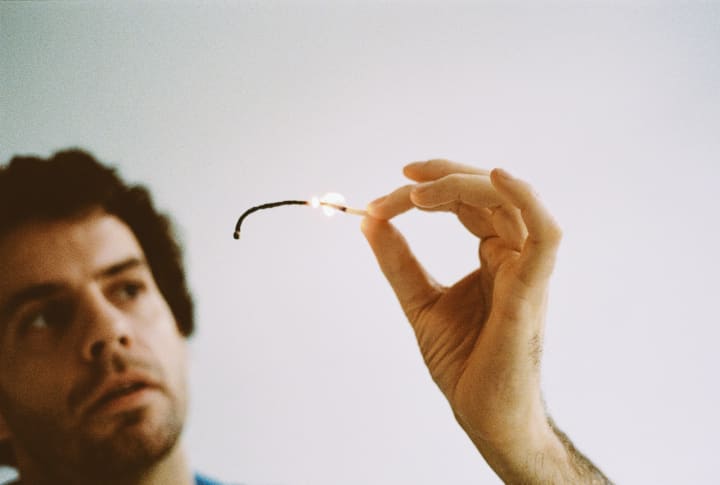The Importance of Self-Care for a Therapist
Both an ethical and personal responsibility

As a therapist, your job is to try your best to help people. In fact, you may see this as a calling or purpose in life. That's wonderful! But it also means that you need to practice self-care to prevent burnout.
Here are some ideas for taking care of yourself so that your work doesn't consume everything you do—and leave nothing left over for yourself and your loved ones.
Self-Care for a Therapist
Self-care is one of the essential parts of being a therapist because it’s vital to your mental, physical, emotional, and spiritual health. However, many therapists don’t always make self-care a priority.
The most common mistake therapists make is neglecting their own needs by putting others first all the time—without realizing that this can lead to burnout and an inability to stay productive or motivated in their practice. It’s important for you to take care of yourself so that you can continue helping others do the same!
What Is Self Care?

Self-care is a way of taking care of yourself. Everyone has different ways to maintain their mental and physical health, and the key to self-care is finding what works for you to prevent burnout. For example, some people like going for walks or listening to music; others may prefer meditating or reading a book on the beach. While these activities are all different from each other, they all have one thing in common: they allow us as therapists and people to take a break from our jobs and permit ourselves to rest—even if it's just for 15 minutes!
Why is it Important?
It's important to understand that self-care is not a luxury; it is a necessity. It is vital to the health and well-being of yourself as a therapist, which in turn helps you be the best therapist for your clients.
Understanding Burnout

Burnout is a state of emotional, mental, and physical exhaustion caused by long-term stress. Burnout is an important issue for therapists because it can lead to depression, anxiety, and substance abuse. It can also lead to a therapist leaving the profession.
Therapists need to recognize signs of burnout so they can take steps to prevent it from happening or get help if they're already experiencing it.
Signs of Burnout
As a therapist, you are likely to experience some level of burnout. It is important to be aware of the signs of burnout to take appropriate steps to prevent it from occurring or returning.
Some common signs include: Feeling tired and fatigued, overwhelmed, angry and irritable, depressed, cynical, and bored. If you notice yourself experiencing these symptoms regularly over several weeks or months, it may be time for serious self-care.
Things You Can Do To Practice Self-Care
The following are some things that you can do to practice self-care:

- Taking breaks away from work when needed or between clients.
- Take time to recharge.
- It’s important to take time off (see more below), especially if you are feeling overworked.
- Try meditating or praying for 15 minutes each day or taking a walk after work; these are both helpful ways of recharging.
- Get enough sleep at night (8–9 hours per night). This helps keep our minds clear during the day so we can focus on our tasks without being distracted by fatigue or exhaustion from lack of sleep!
- Eat healthy meals throughout the day instead of overeating when we get home from work (this is especially important if we have children because they will model their behavior after ours).
- Get enough exercise during the week (30 minutes per day). Studies show that this helps lower depression symptoms among therapists who suffer from depression.
- Spend time with loved ones who offer support and make you feel emotionally energized.
Take Time Off!

Time off is a vital part of your self-care plan. Your body and mind need time to recover, recharge, and de-stress. You should take time off whenever you feel exhausted or burnt out so that you don’t end up getting sick. If you work too much without taking any breaks, it will be very hard for you to focus on your tasks at hand because of how tired and stressed out you are from working all the time.
If possible, try taking a few days off every week so that when something happens in your life (like an appointment with a patient), it won't affect your schedule too much if they have to reschedule their appointment with another therapist instead of going through with yours due to being unavailable due to scheduling conflicts like being out sick or traveling somewhere else during certain times when patients want appointments booked for later on down the road but not yet started hoping people get back sooner than expected but still not sure when exactly so plan!
Practicing Self-Care is an Ethical Responsibility

As a therapist, it's your ethical responsibility to practice self-care. If you're not taking care of yourself, how can you help other people do the same? Self-care is important for everyone—not just therapists!
In order to be an effective therapist and provide clients with the best possible care, it's essential that you take time for yourself. Your mental health must be maintained so that your work stays at its highest quality level possible. Furthermore, if you don't take time off from work or engage in other healthy activities (such as exercising), then burnout is almost certain. This leads to decreased productivity and creativity—and ultimately harms both your client relationships and your therapy practice.
We, therapists, have a difficult job. We are tasked with helping others navigate their own personal healing work, and it can be exhausting. But it’s not just our clients that need our care; we also need to be able to take care of ourselves. Self-care is something that many of us struggle with, but it’s important for your overall and professional well-being – both as a therapist and for your clients as well!
About the Creator
Geomara Flores
I’m Geo, a writer, illustrator, and Marriage and Family Therapy graduate student. I believe in the importance of information and knowledge, and I write about psychology, mental health, spirituality, and social justice.






Comments
There are no comments for this story
Be the first to respond and start the conversation.